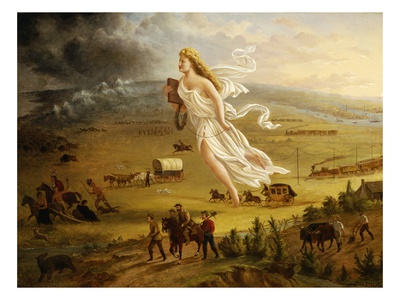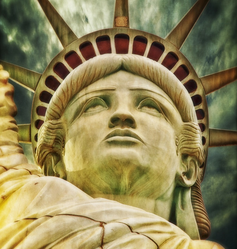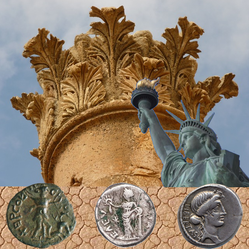 In 1965, President Lyndon Johnson traveled to Liberty Island with an important document in his hand.
In 1965, President Lyndon Johnson traveled to Liberty Island with an important document in his hand.
It was the Immigration and Nationality Act, which would open the gates of America to those previously subject to restrictive quotas. Those included Africans, Asians, Latinos and other individuals whom bigots considered 'undesirable'.
Passing into law at the height of the Civil Rights struggles, the Act was widely viewed as highly controversial. To some it was an utter travesty, if only because it allowed more 'people of color' into the United States as prospective citizens.
President Johnson signed it, amid the flashes and glare of hundreds of press cameras, at the foot of the Statue of Liberty.
There were plenty of historic and symbolic reasons for doing this, not least that Ellis Island was just over the water. Perhaps the biggest of all was that it facilitated dozens of pictures taken of the Act being signed in front of the famous plaque bearing Emma Lazarus's poem The New Colossus. With its reference to the USA as a safe haven for the 'huddled masses', it invoked a much more kindly view of US immigration policy than that currently being raged within those same newspapers' editorials and letters columns.
But he could have just quoted that in his speech. It would have been reported, even if he'd said it in a press conference at the White House.
From a Sovereignty point of view, President Johnson was acting much more symbolically than that. He was telling his detractors loud and clear that he had Liberty on side. She was right behind him (literally) and he was their right and proper leader, making correct decisions.
Nor was he unaware of the risks.
Johnson's predecessor, President John F. Kennedy, had presided over many equally controversial bills, and he'd been assassinated for it. (Presumably. No motive has ever been established for that beyond a vague 'Lee Harvey Oswald hated America' conclusion by the Warren Commission.) Now Johnson was signing his own unpopular Act into law.
Whether the American people trusted Johnson or not, they could have faith in Liberty. Her presence projected a kind of trustworthiness onto the document too. It made supporting it seem All American, even as it facilitated a major change in the demographic of its people.
But Sovereignty had judged that those people should be allowed to settle upon Her land, so they were. Sovereignty's decision is final.


























 In this context, it's a fun fact to note that the Watergate burglars were arrested on June 17th 1972, the 87th anniversary of the Statue of Liberty arriving in the USA. That's surely a coincidence, but what wasn't is how the US Sovereignty was used in the aftermath.
In this context, it's a fun fact to note that the Watergate burglars were arrested on June 17th 1972, the 87th anniversary of the Statue of Liberty arriving in the USA. That's surely a coincidence, but what wasn't is how the US Sovereignty was used in the aftermath.


 In 1965, President Lyndon Johnson traveled to Liberty Island with an important document in his hand.
In 1965, President Lyndon Johnson traveled to Liberty Island with an important document in his hand.













 St Tydecho's Churches in West Waleson 09/03/2014
St Tydecho's Churches in West Waleson 09/03/2014
 Goodies for an Outlander Premiere Partyon 03/06/2015
Goodies for an Outlander Premiere Partyon 03/06/2015
 Holocaust Memorial Day Interview with Rainer Höss, Grandson of Rudolf Architect of Auschwitzon 01/24/2015
Holocaust Memorial Day Interview with Rainer Höss, Grandson of Rudolf Architect of Auschwitzon 01/24/2015
 Romantic Valentine Gifts for an Outlander Fanon 01/16/2015
Romantic Valentine Gifts for an Outlander Fanon 01/16/2015



Comments
our lady liberty should have one arm across her face while she's sobbing.
Just posted it. :) Challenge accepted. Mission complete.
Yay! I'm glad that I made it possible anyway. Liberty does seem to fulfill the role to my mind.
Ooooooh. Dat ending. I am excited for the third part.
As much as I understand it all, I believe you have made a case for the idea of Liberty being a Sovereignty Goddess, but also, to be fair, this is all also apart of me forming a greater understanding of that very idea...so... :|